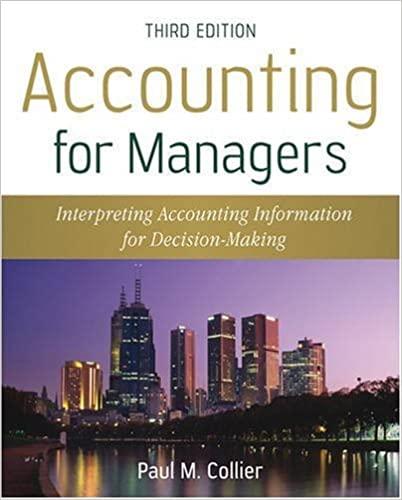Question
Fizzy Company produces six-packs of soda cans. Each can is supposed to contain at least 12 ounces of soda. If the total weight in a
Fizzy Company produces six-packs of soda cans. Each can is supposed to contain at least 12 ounces of soda. If the total weight in a six-pack is less than 72 ounces, Fizzy is fined $100 and receives no sales revenue for the six-pack. Each six-pack sells for $3.00. It costs Fizzy $0.02 per ounce of soda put in the cans. Fizzy can control the mean fill rate of its soda-filling machines. The amount put in each can by a machine is normally distributed with standard deviation 0.10 ounce.
a. Assume that the weight of each can in a six-pack has a 0.8 correlation with the weight of the other cans in the six-pack. What mean fill quantity maximizes expected profit per six-pack? Try mean fill rates from 12.00 to 12.35 in increments of 0.05.
With correlated values, the mean profit is maximized for a large mean fill rate of ___.
b. If the weights of the cans in the six-pack are probabilistically independent, what mean fill quantity maximizes expected profit per six-pack? Try the same mean fill rates as in part a.
With uncorrelated values,the mean profit is maximized for a large mean fill rate of ___.
Step by Step Solution
There are 3 Steps involved in it
Step: 1

Get Instant Access to Expert-Tailored Solutions
See step-by-step solutions with expert insights and AI powered tools for academic success
Step: 2

Step: 3

Ace Your Homework with AI
Get the answers you need in no time with our AI-driven, step-by-step assistance
Get Started


